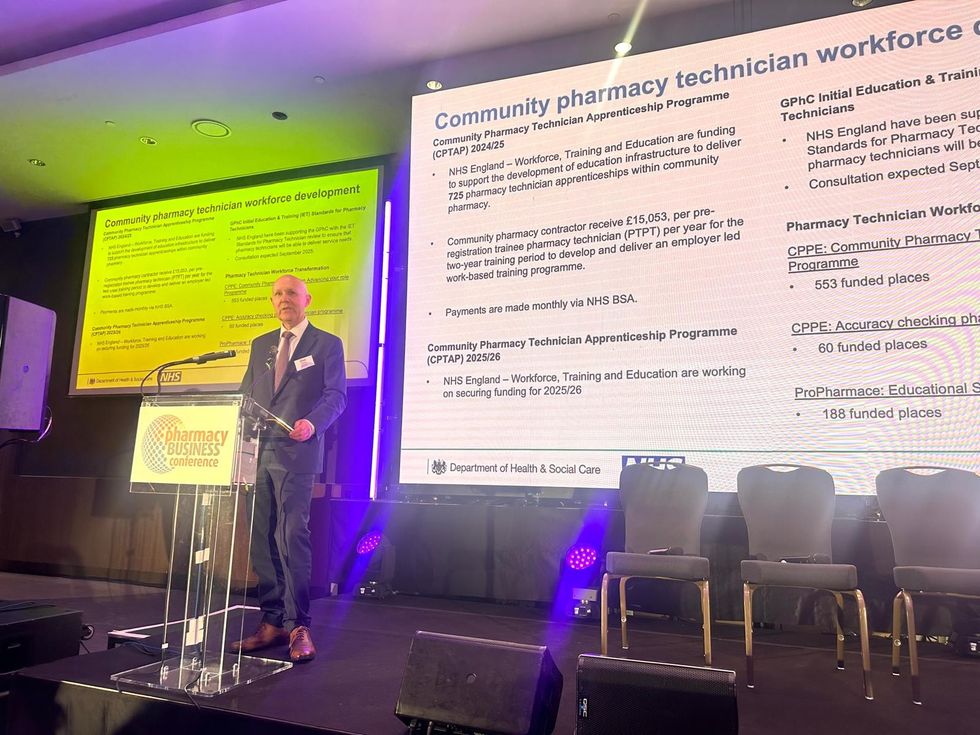By Harpreet Chana
In September last year, I took the scary step of opening up about my own personal struggles with mental health. It was the hardest thing I have ever done and many have asked me why I did it.
I did it not only to highlight the growing problem of mental health in the pharmacy profession but also to demonstrate that if it can happen to me, a seemingly ‘larger than life,’ confident and bubbly person who ‘had it all’, it can happen to anyone. I wanted to make it okay to say that pharmacists are not infallible, we get sick and can struggle, just like anyone else.
This has also been reflected recently by two important wellbeing surveys by both Pharmacist Support and the RPS that worryingly showed over 60 per cent of respondents have had their mental health impacted by work or need support with stress at work and 80 per cent were at a high or very high risk of burnout.
And equally as worrying, over 50 per cent were considering a career change.
Whilst these figures are shocking, they are sadly reflective of a sector that is being pushed to the brink. We all know that being a pharmacist on the frontline is tough. However, alongside the long days and the feeling of isolation – staff shortages, medicines shortages, decreasing funding and an increase in paperwork and service provision are creating a perfect storm for stress, anxiety, burnout and depression.
Since last year, I have been inundated by fellow pharmacists from all different sectors contacting me, usually in tears, telling me about how they have contemplated suicide, how my story is their story, how they don’t speak out for fear of being hauled in front of a Fitness to Practice committee or worse, struck off the register altogether.
And these are just the ones who are brave enough to approach me. These surveys just prove how many more there are out there, suffering in silence and too scared to admit to themselves and others, what is happening to them.
Most pharmacists are trying to keep their heads above water and on top of growing prescription volumes and the constant firefighting. There is little time to even consider their own wellbeing or that of their staff. So, what can be done about it?
A lot, actually. But this isn’t a problem that is going to be resolved easily or overnight. Whilst surveys are great in shining a light on the issue of mental ill-health and the national mental health service for pharmacists that the RPS is campaigning for would be a great start, it doesn’t really tackle the cause.
We need to start with asking the uncomfortable question of why are we pharmacists under so much stress? Is it the growing workload and the amount of pressure being applied by employers or is it because we may not know how best to deal with it?
Is it because our employers haven’t equipped us better to deal with it? Or because we take it upon ourselves to run everything in the dispensary and are bad at delegation? Is it because we don’t trust our staff to look after those tasks that really don’t need a pharmacist, telling ourselves that it’s easier (and quicker) to do it ourselves than train someone else to do it?
The simple answer – it’s all of those things.
We are not taught in the four-year degree how to run businesses or how to be effective leaders. Pharmacists are predominantly taught disease/therapy management and patient care and whilst some universities have started to incorporate some ‘softer skills’ courses, it doesn’t go far enough.
And sadly, most organisations (particularly smaller ones) do not see the value or have the resources to develop their people. These are skills that are currently learnt on the job and it can be hugely stressful trying to be the responsible pharmacist and be a motivational leader of people and of a business at the same time when you haven’t been given the tools or training on how to do it effectively.
So what can be done? Highlighting the problem is important but my focus is on taking action and looking at practical ways we can we start tackling the mental health crisis.
Employers have a duty of care to continually develop their teams and ensure that their mental wellbeing is being looked after. It should be a priority.
Healthy mental practices, personal development and leadership skills can all be taught, but very few employers actively seek to develop (all) their staff on the ground to become better leaders. Or, help their teams to review their current practices in a protected environment and divide the work in a way that best utilise their strengths and reduces stress and this is the key. Proactively identifying and tackling the causes of stress in a business and then equipping its people to cope with it better is the only way we will start to see a demonstrable improvement in mental health.
Whilst employers can help change the external circumstances that trigger stress responses, mental wealth teaches us that much of what we suffer and inflict upon ourselves is a product of our own thought and therefore the real transformation has to start within each individual. Much of what we do and think on a daily basis is a product of habit and our subconscious mind.
In order to bring about real changes in our thinking and our stress responses, we have to firstly understand our own default response to stress and then consciously decide to respond in a different and more positive way. This is mental wealth.
And it gives us better coping mechanisms and the resilience to manage challenges both at work and at home. I know this first-hand from my own experience and now helping countless others to employ these same strategies and live happier, less stressful lives.
Mental wealth training should be a prerequisite for everyone. It saddens me to learn of yet another person having to leave their job or taking their own life due to ill mental health.
Having been there myself, I know that it is preventable.
If I had known then what I know now I would never have ended up thinking about ending my own life, trying to get away from my thoughts. I wonder how much of what our friends, family or colleagues are suffering, could be prevented in the same way?
It is why I have dedicated myself to doing just this – teaching these key principles with a real focus given to proactively preventing mental health problems by building a mentally tougher workforce, rather than watching them leave the sector for ‘less stressful’ roles. It is the only way we can even begin to start resolving the current mental health crisis within our sector.
Yes, it will take time and it will take investment but it has to be better (and less costly) than losing a whole workforce?
This article also appears in the February issue of Pharmacy Business.














 Health Secretary Wes Streeting addresses Pharmacy Conference via video
Health Secretary Wes Streeting addresses Pharmacy Conference via video  David Webb, chief pharmaceutical officer of NHS England
David Webb, chief pharmaceutical officer of NHS England Shailesh Solanki, executive editor of Pharmacy Business
Shailesh Solanki, executive editor of Pharmacy Business L-R: Yasmin Karsan, Pritee Panchmatia and Fin McCaul
L-R: Yasmin Karsan, Pritee Panchmatia and Fin McCaul  L-R: Baba Akomolafe, Rachna Chhatralia, Patricia Tigenoah-Ojo and Raj Matharu
L-R: Baba Akomolafe, Rachna Chhatralia, Patricia Tigenoah-Ojo and Raj Matharu L- R: Nicola Stockmann, Robert Townsend, Atul Patel and Amerjit Singh
L- R: Nicola Stockmann, Robert Townsend, Atul Patel and Amerjit Singh Wole Ososami, lead pharmacist at Westbury Chemist
Wole Ososami, lead pharmacist at Westbury Chemist

